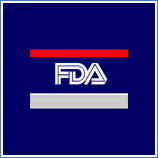 Image by neofedex via Flickr
Image by neofedex via FlickrA good report from American Counsel on Science and Health:
As drugs continue to be taken for longer periods of time, unexpected complications may arise that were absent from short-term clinical trials. New York Times science journalist Gina Kolata reported on what happens when drugs cause problems they were originally developed to prevent, focusing on the risks associated with the now highly restricted diabetes drug Avandia, and bisphosphonates, a class of medicine used to treat osteoporosis.
After post-market analysis revealed that Avandia is alleged to be associated with an increased risk of heart failure, the drug was temporarily removed from the market in Europe and then restricted by the FDA last month.
“Diabetic treatment is supposed to reduce the rate of diabetic complications including vascular disease, kidney disease and neuropathy — not merely control blood sugar. Studies that show Avandia may increase the risk of heart failure illustrate a case of when a drug does the opposite of what it’s supposed to.”
Here is the link: http://www.acsh.org/factsfears/newsID.1961/news_detail.asp
In the Middle East, this news:
According to a circular issued Sunday, health officials have decided to suspend all products containing Rosiglitazone over fears in the United States and Europe over its safety. Bahraini health officials have also banned drugs containing Rosiglitazone, like Avandaryl, Avandamet and Avandia, the Gulf Daily News reports.
Dr Ameen Al Amiri, CEO for medical practice and licensing at the ministry, was reported by the official news agency WAM as saying the drug control directorate had held extensive talks with Avandia’s manufacturers and local distributors.
http://www.arabianbusiness.com/avandia-diabetes-drug-be-banned-over-health-fears-351519.html
http://www.markzamora.com/AvandiaGA/index.html


